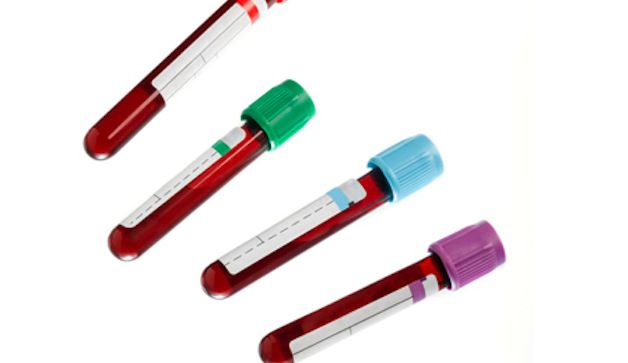Complete Guide to Phlebotomy Course Requirements: What You Need to Know to Start your Medical Career
Embarking on a career in healthcare as a phlebotomist is an excellent choice for those interested in patient care, medical procedures, and working in a fast-paced environment.But before you can start your journey, understanding the essential phlebotomy course requirements is crucial. This comprehensive guide will walk you through all the prerequisites, certification process, and practical tips to help you succeed in launching your medical career.
Why choose a Career in Phlebotomy?
Phlebotomy offers a rewarding path with relatively quick training, solid job prospects, and the opportunity to make a difference in patients’ lives. As a trained phlebotomist, you’ll collect blood samples, assist in diagnosing diseases, and support clinical laboratories. The demand for certified phlebotomists continues to grow with the expansion of healthcare services worldwide.
Understanding Phlebotomy Course requirements
General Prerequisites
Before enrolling in a phlebotomy course, certain baseline requirements typically need to be fulfilled. These ensure candidates have the foundational skills and qualities necessary to perform the roles responsibly and safely.
- Educational Background: Usually, a high school diploma or GED is mandatory.
- Age Requirements: Most programs require applicants to be at least 18 years old.
- Minimum Math and Reading Skills: Basic proficiency to follow procedures and calculate dosages if needed.
- Background Check & Immunizations: some programs require a clean criminal background and current immunizations (e.g., hepatitis B, Tdap, MMR).
Physical & Personal Traits Needed
Being a successful phlebotomist also relies on certain personal qualities and physical skills:
- Good hand-eye coordination
- Steady hands and dexterity
- Ability to work under pressure
- Strong communication and patient-care skills
- Comfort with needles and blood
Prerequisite Certifications & Courses
While not always mandatory before enrollment, some programs prefer or require prior certifications such as CPR (Cardiopulmonary Resuscitation). completing basic first aid and CPR courses enhances your employability and demonstrates preparedness.
Phlebotomy Course Curriculum & Certification Process
Core Topics Covered in a Phlebotomy course
Most accredited phlebotomy training programs cover:
- Anatomy & physiology of the circulatory system
- Blood collection techniques (venipuncture, capillary puncture)
- Safe handling and transport of specimens
- Proper use of needles, tourniquets, and collection tubes
- Infection control protocols
- Patient interaction & communication skills
- Legal and ethical considerations in healthcare
Practical Training & Internships
Hands-on experience is critical. Most courses include lab practice and clinical externships, providing real-world exposure to blood draws and patient interactions. Some programs partner with local hospitals or clinics for internship opportunities.
Certification Exam & Recognition
After successfully completing the course and required clinical hours, aspiring phlebotomists must pass a certification exam. The most recognized certifying agencies include:
- American Society for clinical Pathology (ASCP)
- National Phlebotomy association (NPA)
- American Society of Phlebotomy Technicians (ASPT)
- National Healthcareer Association (NHA)
Certification not only validates your skills but also improves job prospects and salary potential.
Phlebotomy course Requirements Checklist
| Requirement | details |
|---|---|
| Educational Attainment | High school diploma or GED |
| Age | At least 18 years old |
| Background Check & Immunizations | Clean background, Hepatitis B, Tdap vaccines |
| CPR Certification | Recommended prior to certification exam |
| Completion of Accredited Course | includes classroom and practical training |
| Clinical externship | Minimum required hours for hands-on practice |
| Certification Exam | Passage required for official recognition |
Benefits of Meeting Phlebotomy Course Requirements
Successfully fulfilling course requirements and obtaining certification can unlock numerous benefits:
- Higher employability and job security
- Competitive salary potential
- Opportunity for career advancement in healthcare
- Professional recognition and credibility
- Personal satisfaction from helping patients
Practical tips for Aspiring Phlebotomists
- Start preparing early by completing required immunizations and certifications.
- Research accredited training programs near you or online.
- develop excellent communication skills to work effectively with patients.
- Practice blood collection techniques in a simulated lab environment.
- Gain volunteer experience in healthcare settings to enhance your resume.
Case Study: Transitioning into a Phlebotomy Career
emily, a recent high school graduate, completed her high school diploma, then enrolled in an accredited phlebotomy course with clinical internships.She obtained her CPR certification alongside her coursework. After passing her certification exam, Emily secured a position at a local hospital, appreciating the supportive training environment and high demand for trained professionals. Her story exemplifies the importance of fulfilling all course requirements to succeed in the medical field.
Conclusion
Starting a career in healthcare as a phlebotomist is both rewarding and achievable with the right preparation.Understanding the phlebotomy course requirements – from educational prerequisites and personal traits to certifications and practical training – is essential to ensure a smooth pathway into this dynamic profession. By meeting these requirements and gaining certification, you position yourself for promising job opportunities, personal growth, and the fulfillment that comes with contributing to patient care. Begin your journey today and take the first step toward a fulfilling medical career in phlebotomy!
